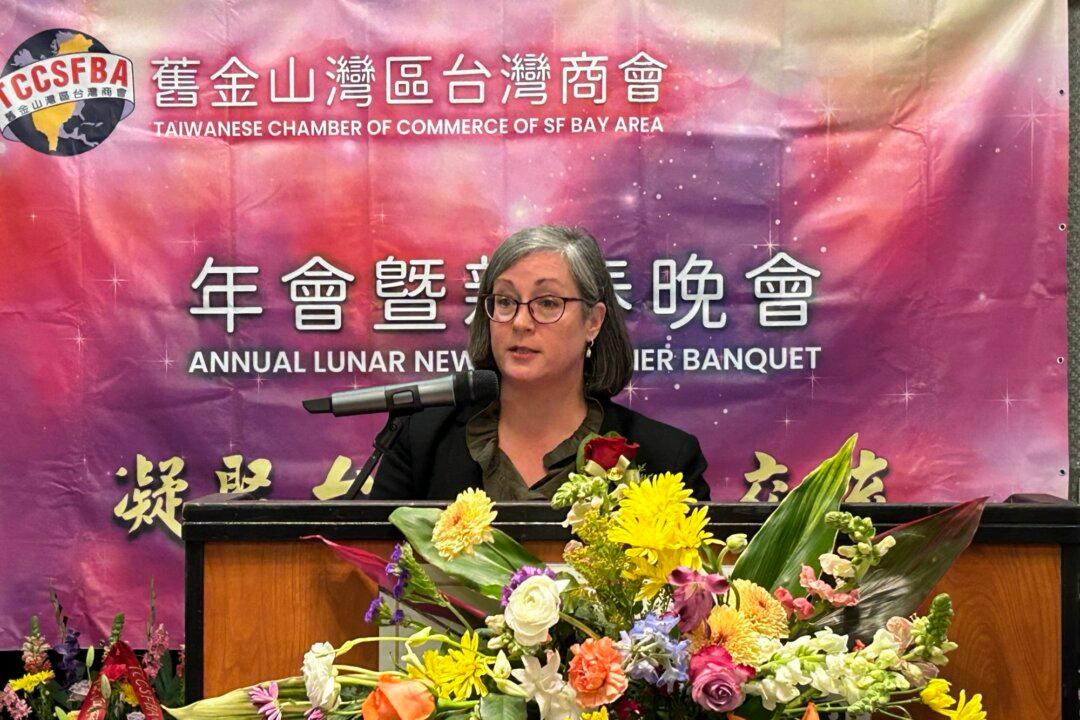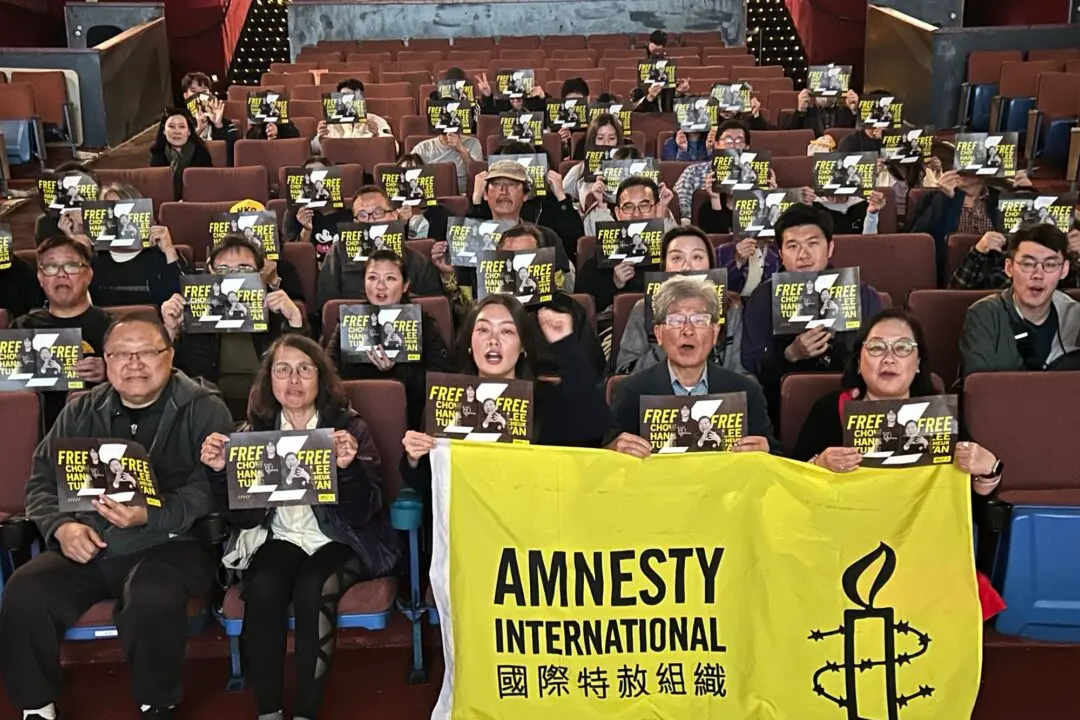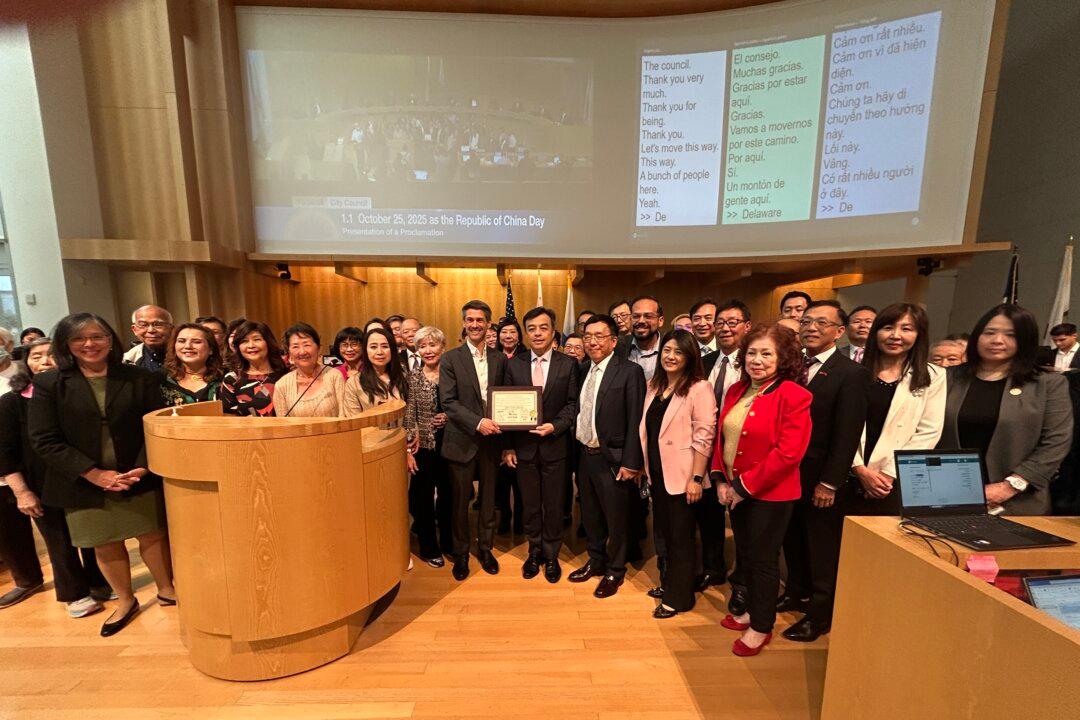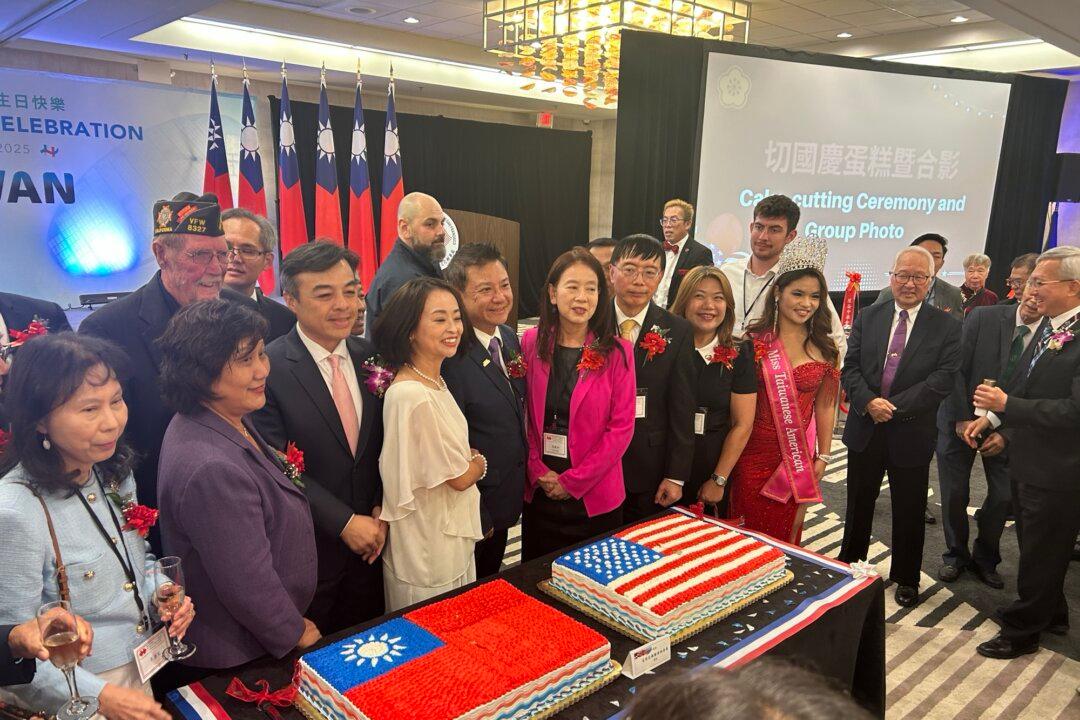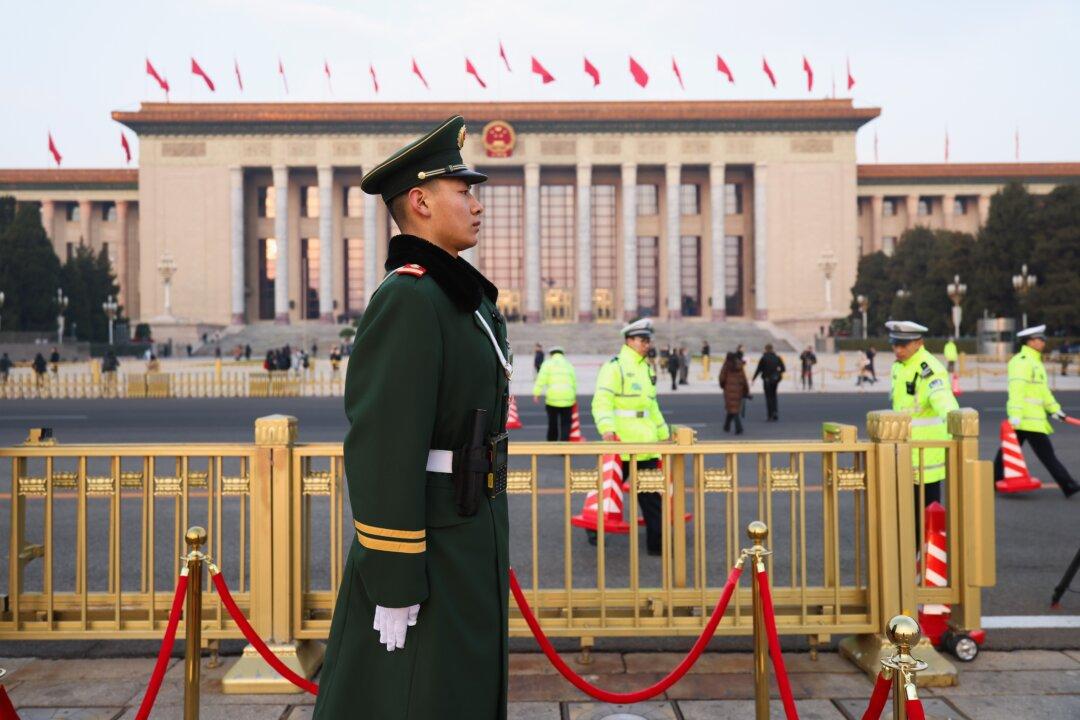During her weekend visit to California, Ingrid Larson, managing director of the American Institute in Taiwan (AIT), said that U.S. policymakers “are working to make progress on key priorities that will maintain peace and stability and advance our robust partnership” with Taiwan.
Ms. Larson made the statement during her speech at the annual Chinese New Year dinner banquet held by the Taiwanese Chamber of Commerce in the San Francisco Bay Area in Union City on March 9.
